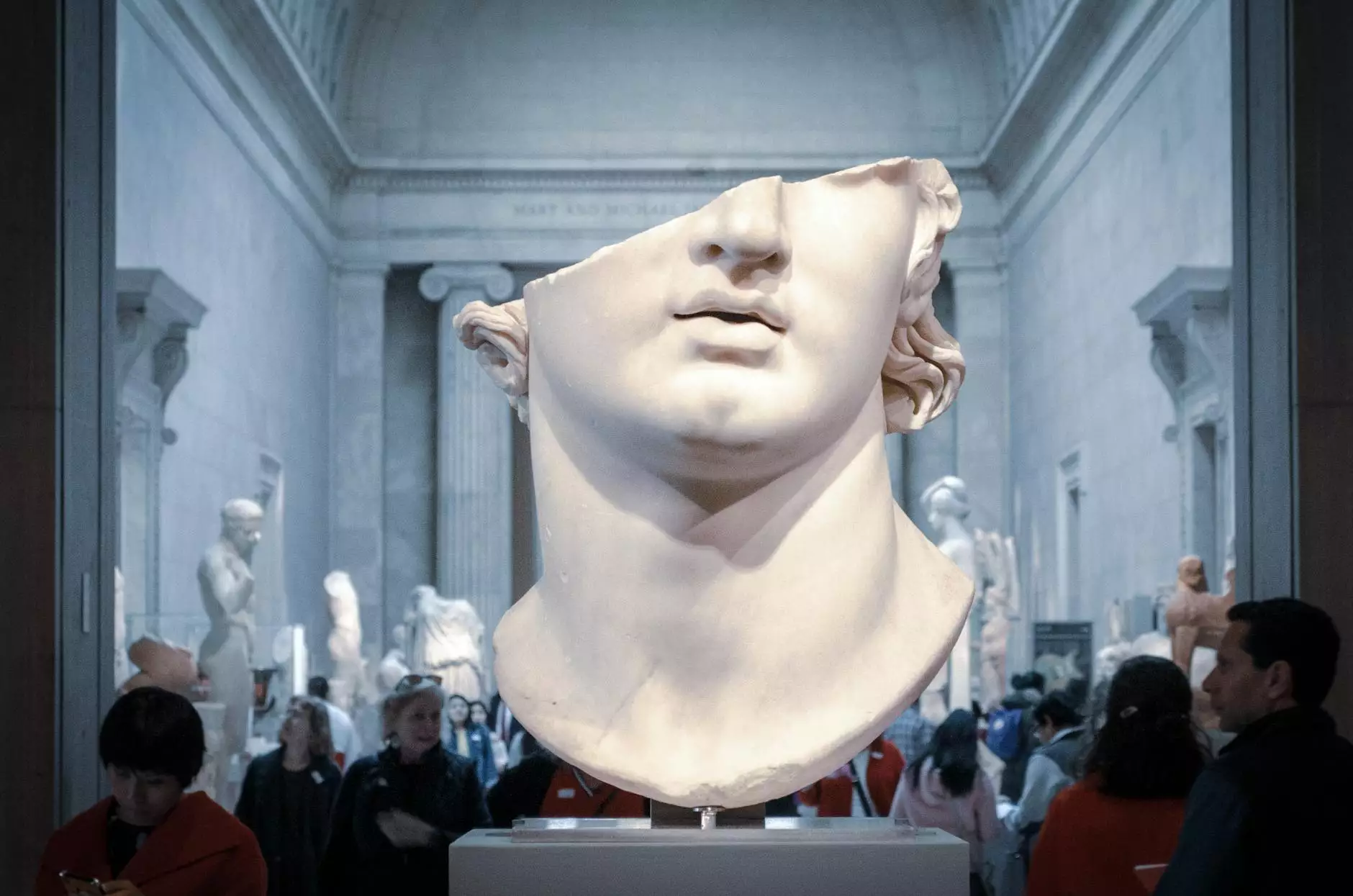Business Success: Restaurants and Art Galleries

The World of Restaurants
The restaurant industry is a vibrant and thriving sector that caters to people's desire for delicious food, memorable dining experiences, and social interactions. As societies evolve, so do the concepts and trends in the restaurant business. With the advent of technology and the rise of social media, the competition has become fierce, and standing out from the crowd requires a winning combination of culinary expertise, unique ambiance, and effective marketing strategies.
Creating Culinary Masterpieces
Restaurants have the power to tantalize our taste buds with a diverse array of culinary masterpieces. From comforting classics to innovative fusion creations, skillful chefs bring their passion and creativity to the table. By sourcing high-quality ingredients, experimenting with flavors, and presenting dishes with beautiful aesthetics, restaurants can capture the hearts and palates of their customers.
Embracing Customer Experience
Successful restaurants not only focus on serving delicious food but also prioritize providing exceptional customer experiences. From warm and welcoming staff to attention to detail in table settings, every aspect of the dining experience matters. Restaurants that excel in creating memorable moments for their patrons build long-lasting relationships and establish a loyal customer base.
Social Media and Online Presence
In the digital age, a strong online presence is crucial for any business, and the restaurant industry is no exception. Engaging with customers through social media platforms like Instagram, Facebook, and Twitter allows restaurants to showcase their mouthwatering dishes, promote upcoming events, and receive valuable feedback. Additionally, maintaining an updated website with an easy-to-navigate menu and online reservation system can greatly enhance a restaurant's visibility and attract more customers.
The World of Art Galleries
Art galleries, with their captivating exhibitions and breathtaking artworks, offer a unique platform for artists to showcase their talent and creativity. These creative spaces provide an ambiance of cultural enrichment, inspiring art enthusiasts, and captivating visitors from all walks of life. Running a successful art gallery involves a delicate balance of curatorial skills, marketing prowess, and fostering meaningful connections with artists and the public.
Curation and Display
Curating an art gallery involves carefully selecting and showcasing artworks that evoke emotions, tell stories, and spark conversations. Art gallery owners and curators work closely with talented artists to ensure that the exhibitions resonate with visitors. By arranging the artworks thoughtfully, incorporating effective lighting, and creating immersive environments, galleries can create a captivating experience for their audience.
Cultivating Artistic Community
Art galleries thrive on a sense of community and shared passion. Cultivating relationships with artists, collectors, and art enthusiasts helps create a vibrant network that supports and promotes the gallery's mission. By organizing art events, artist talks, and workshops, galleries provide platforms for artists to connect with the public, fostering an environment that encourages artistic growth and appreciation.
Marketing and Promotion
Effective marketing and promotion play a crucial role in showcasing the gallery's exhibitions and attracting visitors. Utilizing various marketing channels, including social media, online art platforms, and collaborations with local media outlets, can significantly increase the visibility of an art gallery. Engaging storytelling and visually appealing content can captivate potential visitors and establish a distinct brand identity.
Do Lobsters Die of Old Age?
Now, let's dive into the intriguing world of lobsters and uncover the truth about their lifespan. One common question often asked is whether lobsters die of old age.
Contrary to popular belief, lobsters are not immortal creatures. However, they do exhibit an extraordinary longevity compared to many other animals. Lobsters, like other decapod crustaceans, grow continuously throughout their lives. As they age, they become larger and heavier, with some reaching impressive sizes.
Interestingly, lobsters do not die because of age-related factors. Instead, they face a variety of challenges that can ultimately lead to their demise. Factors such as disease, predation, environmental changes, and fishing practices all contribute to the natural life cycle of lobsters.
In the wild, lobsters face predators like large fish, octopuses, and other crustaceans. Their hard exoskeleton provides protection, but it doesn't make them invincible. In addition, lobsters can be more susceptible to diseases and infections as they grow older, which may weaken their health and make them more vulnerable to predation.
Moreover, the impact of environmental changes, such as variations in water temperature and habitat degradation, can influence the survival of lobsters. These changes can disrupt their food sources, reproductive patterns, and overall well-being.
It is also worth noting the impact of human activities, specifically fishing practices, on the lobster population. Sustainable fishing practices are essential to ensure the long-term survival of lobsters. Regulations, such as size limits and quotas, help maintain the balance between fishing and conservation efforts. By adhering to responsible practices, we can preserve the natural life cycle of lobsters while enjoying their culinary delights.
Conclusion
The restaurant and art gallery industries offer unique and enriching experiences for both creators and consumers alike. By embracing culinary excellence, prioritizing exceptional customer experiences, and leveraging social media and online platforms, restaurants can thrive in a competitive market. Likewise, through curation, community building, and effective marketing, art galleries can captivate audiences and create lasting impressions.
While the lifespan of lobsters may not be indefinite, their remarkable longevity is a fascinating aspect of their natural life cycle. Understanding the challenges lobsters face and promoting responsible fishing practices ensures the conservation of this iconic marine creature.
Whether it's savoring a gourmet meal or immersing oneself in the world of art, the restaurant and art gallery industries continue to shape our society and offer endless possibilities for success.









